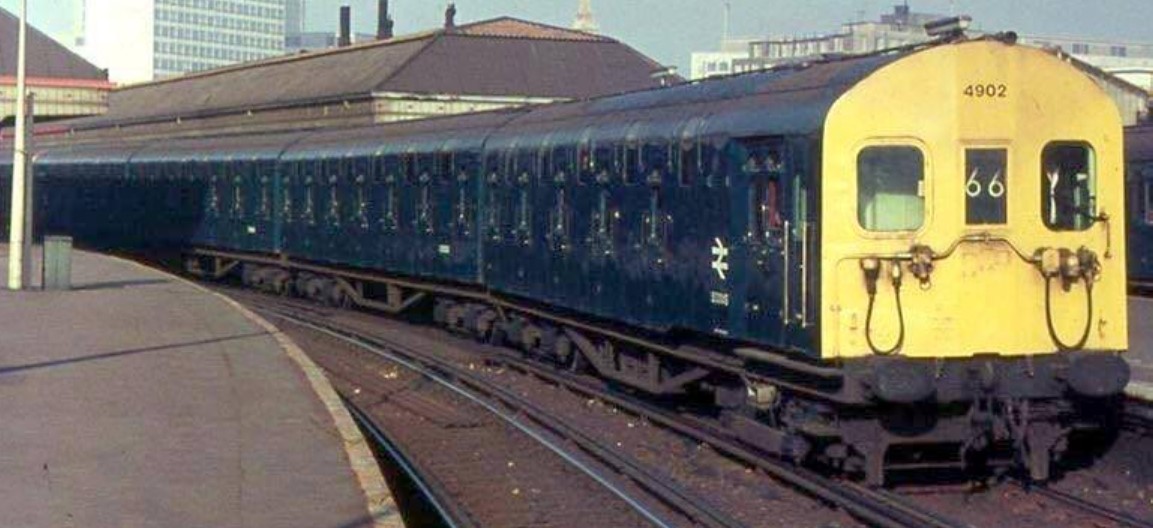Class 4-DD Double-Decker SR Profile and Models

Set 4902. Location & date unknown. © via KR Models
|
The SR Class 4DD was an experimental double-decker electric multiple unit. Conceived by Oliver Bulleid for the commuter line from London Charing Cross to Dartford, the two trains were the only double-decker trains to be used on the mainline railway network in Britain. Whilst commonly used in continental Europe and North America, the restrictive railway loading gauge in the United Kingdom prohibits normal double-decker trains. The 4DD was more split-level than truly double-deck because the compartments were alternately high and low to ensure that the overall height of the train was exactly within the clearances necessary to safely pass through tunnels and under bridges. The intention to carry more passengers in a train of the same length as other contemporary stock was met, with the two 4-DD units having 1,104 seats compared to 800 in other units of similar age. However it was found that the additional number of passengers meant longer time spent at stations. Unusually for an "experiment" they lasted in traffic from 1949 to 1971, undergoing routine maintenance and repaints with no hiccups in their life. Two driving motor cars have been preserved. |
|
|
Type of Unit |
Double-Decker EMU - 750V DC 3rd Rail |
|
Builder |
BR Lancing Works |
|
Build Dates |
1949 |
|
Total Built |
2 4-car Sets |
|
Top Speed |
75 mph |
|
Passenger Capacity |
1,104 Seated |
|
Operated By |
British Railways |
|
Main Duties |
Local Passenger |
|
In Service Until |
1971 |
|
Surviving Examples |
Two x DMBT cars preserved |



 BR green with coaching stock roundel
BR green with coaching stock roundel
 BR blue
BR blue